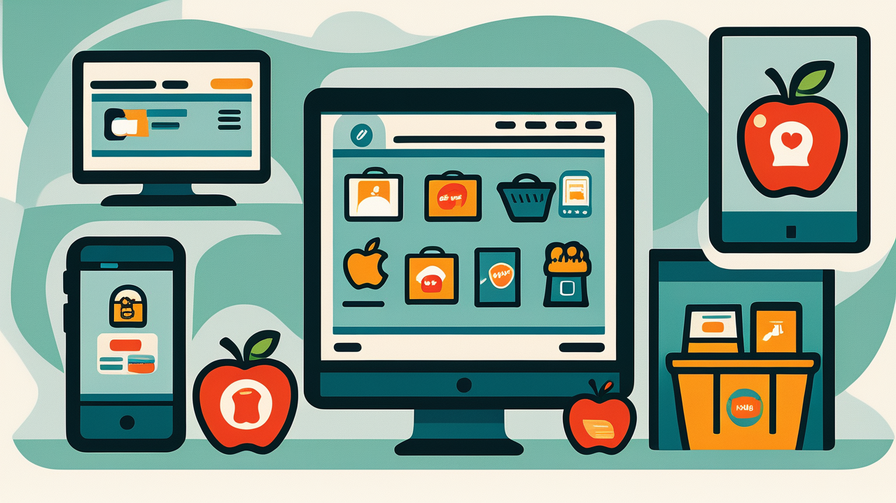[Disclaimer] This article is reconstructed based on information from external sources. Please verify the original source before referring to this content.
News Summary
The following content was published online. A translated summary is presented below. See the source for details.
Apple has officially launched its retail presence in Saudi Arabia with the opening of the Apple Store online and the Apple Store app. This marks a significant milestone as Apple expands its direct-to-consumer operations in the Middle East region. Saudi customers can now purchase Apple products directly from the company, access the full range of products and services, receive personalized support, and benefit from Apple’s retail programs including free delivery, financing options, and trade-in services. The online store offers the complete Apple lineup including iPhone, iPad, Mac, Apple Watch, AirPods, and accessories, all with Arabic language support. Customers can also access Apple’s education pricing, business solutions, and schedule sessions with Apple Specialists for personalized shopping assistance.
Source: Apple Newsroom
Our Commentary
Background and Context

Saudi Arabia represents one of the largest and fastest-growing technology markets in the Middle East. With a population of about 35 million people, where over 70% are under 35 years old, the Kingdom has one of the highest smartphone penetration rates in the world – nearly 97% of the population uses smartphones.
Until now, Saudi consumers could only buy Apple products through authorized resellers and telecommunications companies. This meant limited product selection, potentially higher prices, and no direct access to Apple’s customer service and special programs. The launch of Apple’s official online store changes this completely.
This expansion aligns with Saudi Arabia’s Vision 2030, an ambitious plan to diversify the economy beyond oil and embrace digital transformation. The government has been actively encouraging international tech companies to establish a presence in the Kingdom.
Expert Analysis
Apple’s timing is strategic. The Saudi Arabian tech market is booming, with consumer spending on electronics growing by double digits annually. Young Saudis are particularly tech-savvy and brand-conscious, making them ideal Apple customers.
The online-first approach makes sense for several reasons. First, it allows Apple to quickly establish a presence without the time and investment required for physical stores. Second, Saudi consumers are comfortable with online shopping – e-commerce has grown over 60% in recent years.
By offering Arabic language support and local payment methods, Apple shows it understands the importance of localization. This isn’t just translation – it includes right-to-left interface design and cultural adaptations.
Additional Data and Fact Reinforcement
The Middle East represents a significant growth opportunity for Apple. The region’s GDP exceeds $3 trillion, with Saudi Arabia accounting for about $830 billion. The Kingdom’s young population has high disposable income – GDP per capita is around $23,000.
Apple’s market share in Saudi Arabia has been growing despite only having indirect sales channels. Industry analysts estimate iPhone holds about 30% of the premium smartphone market in the Kingdom. Direct sales could significantly boost this figure.
The online store launch includes several firsts for the region: Apple’s education pricing for students and teachers, the iPhone Upgrade Program for annual upgrades, and Apple Business Essentials for small companies. These services were previously unavailable in Saudi Arabia.
Related News
This launch is part of Apple’s broader Middle East expansion. The company opened its first physical stores in the UAE and has been growing its presence across the Gulf Cooperation Council (GCC) countries. Competitors like Samsung and Huawei have also been expanding their Middle East operations.
The timing coincides with Saudi Arabia’s push to become a regional tech hub. The Kingdom recently announced NEOM, a $500 billion futuristic city project, and has been attracting tech companies with incentives and regulatory reforms.
Summary

Apple’s online store launch in Saudi Arabia represents more than just a new sales channel – it signals the company’s confidence in the Kingdom’s digital future. By providing direct access to products and services, Apple can better serve Saudi consumers while supporting the country’s technological ambitions. This move will likely pressure competitors to enhance their offerings and could accelerate the overall development of the Kingdom’s tech retail sector. Success in Saudi Arabia could also pave the way for Apple to expand further across the Middle East and North Africa region.
Frequently Asked Questions
What products can Saudi customers now buy directly from Apple? The complete Apple lineup including all iPhone models, iPads, Macs, Apple Watches, AirPods, Apple TV, HomePods, and accessories. Software and services like AppleCare+ are also available.
Are prices different from authorized resellers? Apple typically maintains consistent pricing, but direct purchasing eliminates retailer markups and offers exclusive deals like education discounts and trade-in values that may not be available elsewhere.
Will Apple open physical stores in Saudi Arabia? While no announcements have been made, Apple typically starts with online stores before opening physical locations. The success of the online store will likely influence future retail plans.


